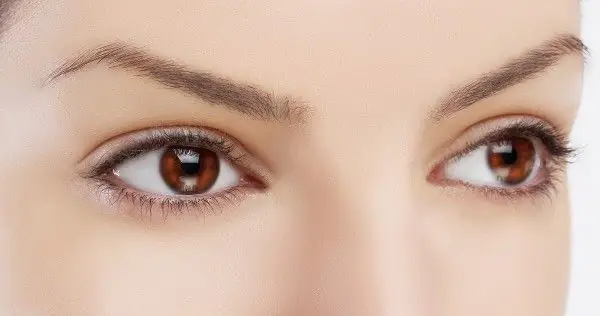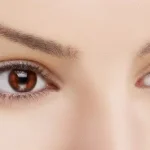Eyes are a very fragile part of our body when it comes to handling allergies, infections or diseases. Therefore, it is essential to pay attention to any symptoms that may be a cause of any significant eye problems.
Types of Eye Problems – Symptoms and Treatment
Here is a list of some eye problems, their symptoms and course of treatment.
- Presbyopia:
Presbyopia is the loss of the ability to see close objects or small print. It is a normal process that happens slowly over a lifetime, but you may only notice any change after the age of 40. It is often corrected with reading glasses.
- Dry eyes:
Dry eyes happen when tear glands cannot make enough tears. Symptoms are itching and burning in the eyes. It is generally treated with eye drops that stimulate tears or act as lubricants or artificial tears.
- Conjunctivitis:
Conjunctivitis is a condition in which the tissue that lines the eyelids and covers the cornea becomes inflamed due to viral or bacterial infections. It can cause redness, itching, burning, tearing, discharge, or a feeling of something in the eye. It is treated with antihistamines and can be prevented and controlled by maintaining proper personal hygiene like washing hands properly and not sharing personal items like handkerchiefs, towels etc.
- Cataracts:
Cataracts are cloudy areas that develop within the eye lens. When a cataract is present, the light cannot get through the lens as easily and, as a result, vision gets impaired. They often form slowly, causing no pain or symptoms in the eye. The cataractous lens is removed with the help of cataract surgery and is replaced with an artificial intraocular lens thereby restoring clear vision.
- Glaucoma:
Glaucoma occurs when there is a typical and progressive deterioration of the optic nerve. It is often associated with increased pressure of the eye, which can be related to damage to the optic nerve treatment may include prescription eye drops or surgery.
Glaucoma or ‘Kala Motia’ is a condition wherein an increased intraocular pressure is caused by improper drainage of aqueous fluid in the eye. This elevated pressure damages the optic nerve, which is the conduit of visual messages to the brain. Working silently, glaucoma irreversibly damages the vision, and if not treated on time, it may lead to complete blindness. There is no proven way to prevent glaucoma. Frequent monitoring, regular checkups can help detect the disease in its early stages. Glaucoma cannot be cured, but it can be controlled so that further damage to the optic nerve can be slowed or halted. This can only be done through disciplined and regular treatment through medical, surgical or laser management under a glaucoma specialist.
- Retinal disorders:
Retinal disorders damage the retina, thereby disrupting the transfer of images to the brain. These disorders include age-related macular degeneration (ARMD or AMD), diabetic retinopathy and retinal detachment. Early diagnosis and treatment of these conditions are vital to maintaining the image.
- Floaters:
Floaters are tiny spots or specks that float across the field of vision. Most people notice them in well-lit rooms or outdoors on a bright day. They can sometimes indicate a more serious eye problem, such as retinal detachment, especially if light flashes accompany them. They are treated to the extent of possible correction by surgery in case of retinal detachment.
- Macular Degeneration:
The macula is the functional centre of the retina. It lies in the central area of the retina, which is composed of light-sensing cells. Macula gives us the ability to best colour vision with sharpness. The macula helps us to view objects in detail, read, and recognise colours and faces. Macular degeneration is a progressive, chronic disease that destroys the central portion of the retina, known as the macula. This eye condition is commonly related to ageing, so it is also known as age-related macular degeneration (AMD).
Age-related macular degeneration is of two types: Dry macular degeneration (dry AMD) and wet macular degeneration (wet AMD). Majority of people suffering from macular degeneration belong to the dry macular degeneration type. Wet macular degeneration is quite uncommon and is treated with laser procedures. Dietary supplements enriched in vitamin and minerals, protection from harmful UV rays of the sunlight, eating a balanced diet, quitting smoking can reduce the progression of macular degeneration. There is no single way to cure this condition completely. But some prescription medicines help in preventing the growth of abnormal blood vessels within the eye.
- Diabetic Retinopathy:
As the name suggests, diabetic retinopathy is a diabetes complication which affects the eyes. It damages the blood vessels spread throughout light-sensitive tissues of the retina. People who have diabetes for a long time, that too, with fluctuating blood sugar levels can develop this condition. Patients with type 1 and type 2 diabetes can also have diabetic retinopathy.
There might not be any noticeable symptoms for this eye condition. But during the later stages, people suffering from diabetes retinopathy might have some signs like dark spots floating through the vision, fluctuating vision, vision loss, blurred vision, impaired colour recognition etc. Once diabetes retinopathy progresses to its advanced stages, there is no reliable way to cure it. Early detection and treatment can dramatically reduce the chances of permanent vision loss. Have you heard of photocoagulation? It is the laser treatment for retinopathy. This option can be utilised if before the retina gets severely damaged. Another option to treat diabetic retinopathy in its very earlier stages is a vitrectomy. It is a process in which the vitreous gel is removed surgically before the retina has not been severely damaged.
- Colour Blindness:
As the name suggests, people suffering from colour blindness are colour deficient and do not see some colours in the usual manner. This happens because of the issues in the pigments found in the eye cones. Red-green colour blindness is the most common form of colour blindness. It is a vision-impairment when a person is unable to differentiate between red and green colours. Likewise, some people also have blue-yellow or red-green colour blindness as well.
The worst form of colour blindness is achromatopsia, in which the cones lack the presence of any colour pigments and so eyes can’t see colours at all. This eye condition still lacks a reliable cure. But with the help of contact lenses and glasses with filters, some colour deficiencies can be assisted. Specific adoption methods are required.
- Strabismus (Crossed Eyes):
Strabismus is an eye condition in which the person is not able to align both the eyes simultaneously under normal circumstances. You must have seen people with one, or both the eyes turning inwards, upwards. The misalignment can either be intermittent or constant. Crossed eyes commonly have four forms, i.e. exotropia, hypertropia and hypotropia. Signs and symptoms for this eye condition include complaints of double vision, uncoordinated eye movements, inability to focus on a particular point at the same time and loss of depth perception.
This eye-disorder is treated differently in kids and adults. While dealing with kids, eyeglasses, eye patching or atropine drops are used in the first place. If these options don’t help, then eye muscle surgery might be advised. Eye muscle surgery involves tightening or loosening of the muscles so that eyes move in an aligned manner. In adults, strabismus is treated depending upon the severity of the case. Prism correction is one way through which this eye-condition is addressed. If the patient runs out on all the options, then an ophthalmologist would advise you surgery after considering a host of factors. At Centre for Sight, the guiding principle for achieving excellence in eye care is to provide best eye care and honest clinical opinion using the latest technology. We have one of the best teams of doctors, surgeons, consultants and other staff for your treatment. Through thorough testing, the condition of the patient’s eye is diagnosed with accuracy, and then the correct procedure is suggested. We specialise in various fields like Lasik & refractive surgery, cornea services, ocular surface & dry eyes disorders, computer vision syndrome, paediatric ophthalmology & squint, cataract and glaucoma services.





